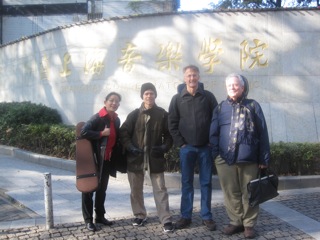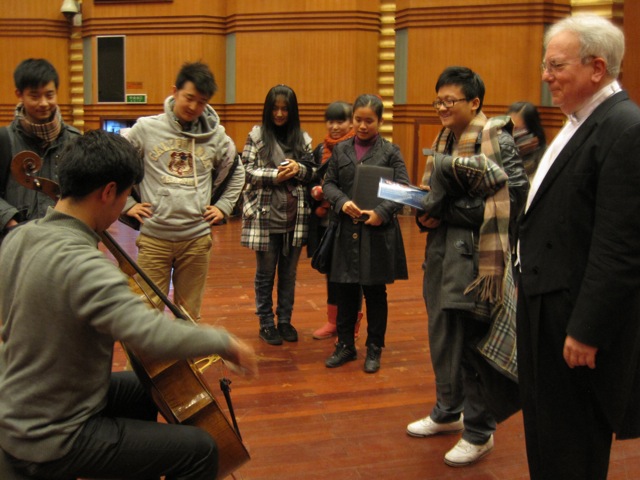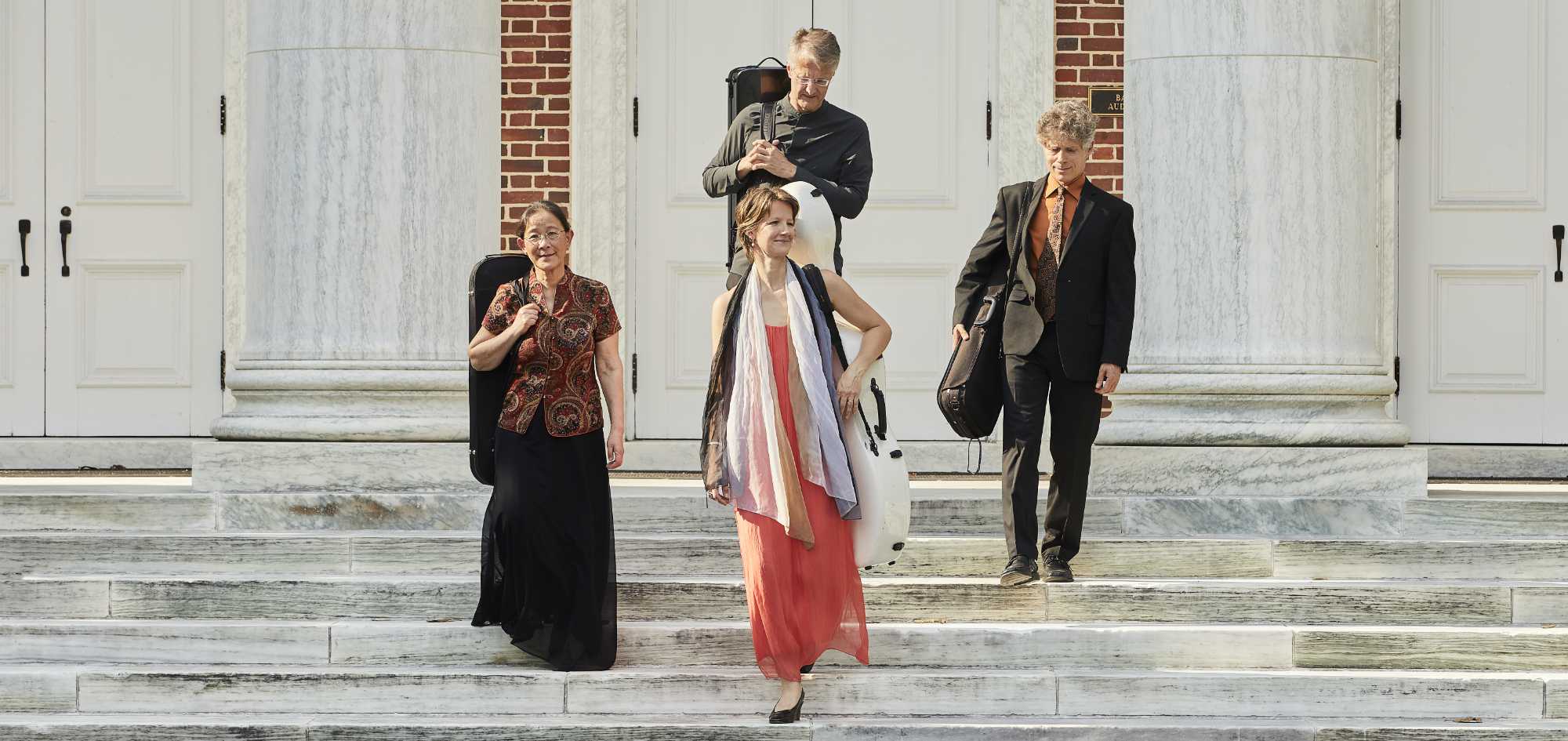 We had a wonderful tour of China in December. Here are a few memorable moments, musical and cultural. Our second concert, after Shanghai, was in Xuzhou, NOT to be confused with Suzhou, pronounced “SU-joux”) famous for its rock gardens. We had played THERE on our last trip. Xuzhou, (pronounced “SHoo-zo”) a city of perhaps seven million souls, is built around a lake. We were met at the train station, many miles out of town, by a representative of the local concert hall. She came with a large van and a confident driver. The young lady was very eager to introduce herself and her city. She said that on the way to the hotel we would take a turn around the lake, which we simply HAD to see. We assured her that extra driving was not a priority, but she brushed this aside by noting that the hotel and concert hall were part of the same itinerary. It took a good thirty minutes to penetrate the outskirts of the city. We were quickly learning that traffic is a bane around any Chinese city. But once we reached the lake, the traffic cleared up, and we enjoyed the sights along the waterfront – parks, beaches, statuary, and many strollers. And only a minute after rejoining city traffic, we were at our hotel.
We had a wonderful tour of China in December. Here are a few memorable moments, musical and cultural. Our second concert, after Shanghai, was in Xuzhou, NOT to be confused with Suzhou, pronounced “SU-joux”) famous for its rock gardens. We had played THERE on our last trip. Xuzhou, (pronounced “SHoo-zo”) a city of perhaps seven million souls, is built around a lake. We were met at the train station, many miles out of town, by a representative of the local concert hall. She came with a large van and a confident driver. The young lady was very eager to introduce herself and her city. She said that on the way to the hotel we would take a turn around the lake, which we simply HAD to see. We assured her that extra driving was not a priority, but she brushed this aside by noting that the hotel and concert hall were part of the same itinerary. It took a good thirty minutes to penetrate the outskirts of the city. We were quickly learning that traffic is a bane around any Chinese city. But once we reached the lake, the traffic cleared up, and we enjoyed the sights along the waterfront – parks, beaches, statuary, and many strollers. And only a minute after rejoining city traffic, we were at our hotel.
Check-in went smoothly, and we were soon up on the eighth floor. Our rooms were along the same hallway., so we each ducked into our sanctuary to freshen up and prepare to go to the hall for a rehearsal. But suddenly, before any of us had unpacked so much as a toothbrush, we heard an unearthly laughter, emanating from Hsiao-mei’s room. We all rushed over to investigate, and found that the laughter came from Hsiao-mei herself, though it was of a type and an intensity that we had never heard before. There, spread-eagled on the window outside her room, dangling eight floors up, was a man, staring calmly and with professional disinterest into the room. Although it took only a minute to figure out that the man was washing her window, Hsiao-mei’s laughter could not be checked. It was the brazenness of the posture, the lack of any sense that he might look odd from within the room, and beyond that the symbolism of overlooking, nay looking so directly it hurt, at ordinary citizens in their private moments, that fueled her laughter. We joined in the merriment, but lacking Hsiao-mei’s background, we couldn’t get the joke as fully as she did.

It was only a ten-minute walk to the concert hall, along a causeway that jutted into the lake. The moment we turned onto the causeway our wonder began. The concert hall resembled a bird that had just then landed and settled on the lake. The closer we drew to it, the more fantastic and detailed the imagery grew. And on the inside, the auditorium was all a stunning red with the most comfortable seating and marvelous acoustics. We understood the pride of our hostess, and of all the subsequent citizens we met. Their town had gained a fantastic symbol, outrageous in design, but a structure that would bring people together for decades to come.
We performed very well that evening. The signature piece on the program was “The Mountain Driver’s Song,” a lively Chinese folk song. At the song’s main cadences, the players put up our bows, and let loose with a triumphant “Yooooo – HO.” I think we had been a little tame with this expostulation in the past, but our good feeling about the town now made us throw ourselves into the refrain, and the audience responded in kind.
Following the concert was picture time. Chinese people have embraced the cell phone in a single gulp, and are not at all shy about requesting a photo with a visiting musician. On Hsiao mei-s initiative we first conducted a question and answer session at the front of the auditorium. (In Suxiao, as in too many concert halls around the world, including at Duke, audience members are denied entrance backstage.) The questions were mostly standard, but audience members had an unusual interest in music as a career. How had we chosen this path, did it reward our love of music, were our children also musicians? Also unusually, several young students found the Haydn quartet the most entrancing piece on the program. I left the picture-taking ahead of my colleagues, and found my way outside to the enchanted island of the concert hall. Many patrons had lingered, and quite a few thought a family photo with a western cellist would be a perfect capstone to the evening. I dislike photo sessions, public or private, but could offer no objections to requests that I pose with singles or small groups of people who had liked my music. In fact, it began to feel rather nice.
Fred Raimi
January 8, 2012



